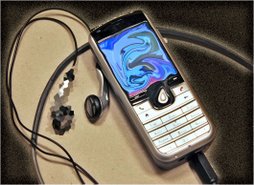The internet
- A network of networks
- Include servers, mainframes and personal computers. Also other devices that includes computer-mediated communications technology(CMC)
- Connected through telephone system, broad-band and satellite services
- Links people around the world
World Wide Web
- Emerged in 1990 when people began to see the potential for computers to communicate with each other
- Use the techniques of internetworking and hypertext to make a powerful and easy use global system to share information accessible as part of a seamless hypertext space
- Includes all internet sites that is available on servers across the whole globe
WWW is not the same as internet--> just a part of it. If you use a web browser (Firefox, Explorer etc) then you are browsing the WWW. The web=the internet
Cyberspace
A definition can be: A conceptual space where words, relationships, data, wealth and power are manifested by people using CMC technologies.
Early Internet Applications
- Electronic mail (Email)
- File Transfer Protocol (FTP)
- Internet Relay Chat (IRC)
- MUDs, MOOs, MUSHes, etc.
More Recent Internet Applications
-Instant Messaging (IM)
-Peer-to-Peer (p2p) file sharing
-weblogs and various forms of 'blogging'
-Portable Audio (MP3s, AAC, FLAC, OGG, etc), and Podcasting
VoIP and Voice chat
-3G mobile telephony - mobile platforms for content development.
-MMOGs and online gaming
-'Virtual Worlds' like Second Life and There
-Web 2.0', which brings together the idea of 'Social networking software'and also 'user- generated content' sites like YouTube and FlickR for example.
Netiquette
Netiquette is etiquette on the Internet. The internet changes rapidly so the netiquette has to-> still usually based on the golden rule-> do unto others as you would have them do to you.
It requires civil behaviour between participants.
Cracking, hacking and viruses
Cracking->computer crime.
Hacking-> hackers are computer experts and programmers.
Virus-> potential for massive damage on computers for little input. Can damage computers.
Economics of Cyberspace
- Social network capital – the value in person to person interaction though we might never meet
- Knowledge capital – value in ideas means that sharing information equals sharing power
- Cultural capital – the value in the values we share and that allows us to live creative lives in a civil society
The Possibilities and Problems of the Information Economy
- What is your product?
- What is your market?
- How do you get people to pay for what you’ve got?
- How do you make living out of an idea?










No comments:
Post a Comment